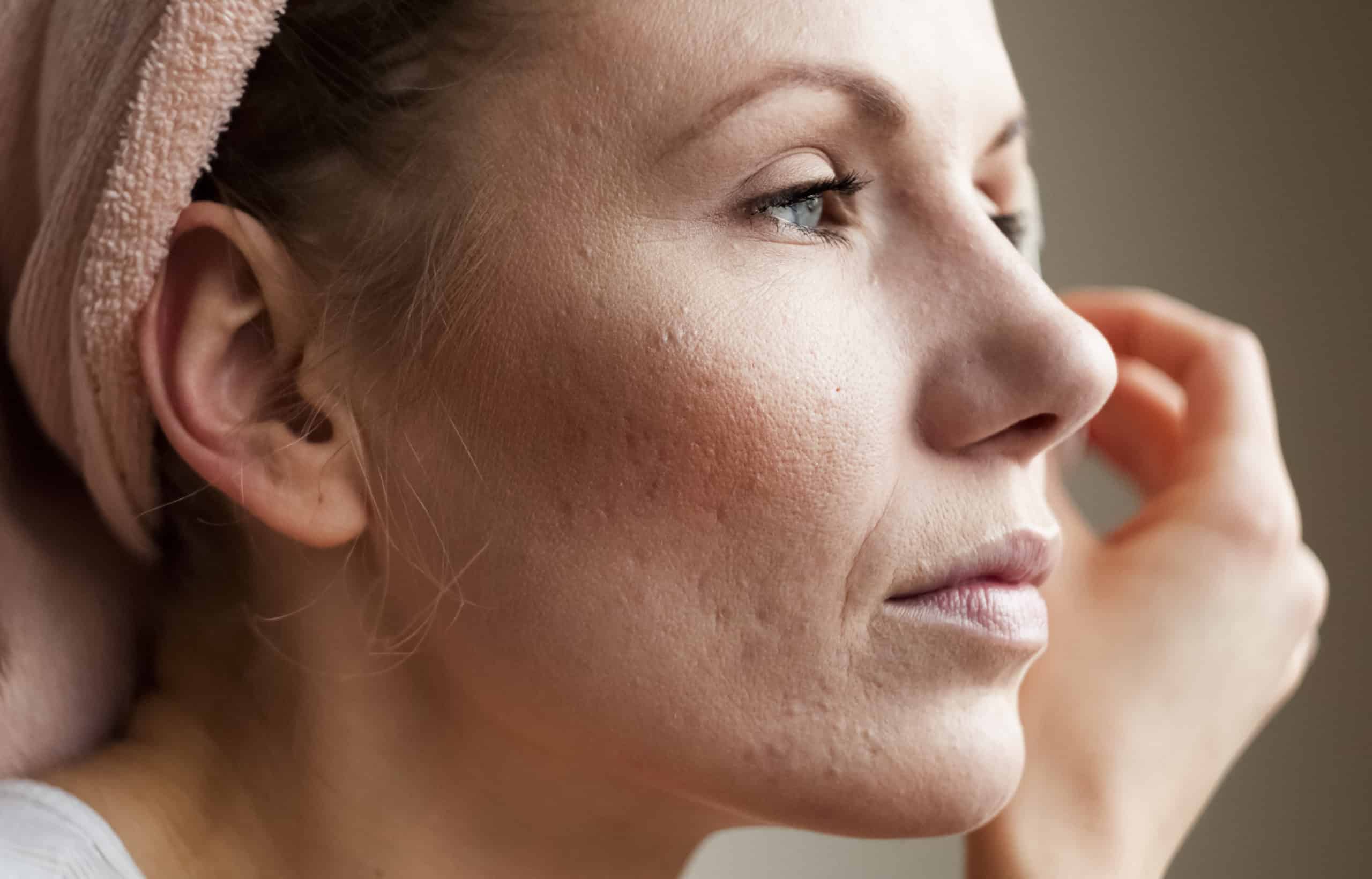
Acne Scars
Acne can be incredibly frustrating. Living with breakouts on the face, neck, or back can create insecurity that, unfortunately, can alter the self-confidence of those who suffer from active breakouts. Even after acne is resolved, whether treatment heals the skin, or acne goes away on its own, acne scars may be left behind as a constant reminder.
Conquering acne and acquiring beautiful, healthy skin, then having to deal with acne scars can be as disheartening as an active breakout is. Instead of beating acne and then moving on, those affected are left with scars that act as permanent reminders. Thankfully, a myriad of treatments exist that can either reduce or resolve acne scarring.
Types of Acne Scars
- Loss of Tissue: Loss of tissue scars are sometimes referred to as ice pick scars and are one of the most common forms of acne scarring. These types of scars make the skin look sunken-in or like there are small divots in the skin.
- Tissue Scars: Tissue scars leave behind damaged tissue that appears enlarged or raised.
- Macules: Macules are red spots that remain on the skin after acne has subsided. Typically, these spots will lighten over time and gradually disappear within several weeks.
- Hyperpigmentation: Hyperpigmentation causes skin discoloration and may appear inflamed in comparison to the rest of the skin. Hyperpigmentation may appear for months after acne has healed.
Acne Scar Removal
If you’re considering having acne scars removed, the smartest thing to do is consult a dermatologist. A professional will assess your skin, the type of scarring, and also help determine the most effective treatment.
Your dermatologist may offer you one of the eight treatments listed below to help your acne scars heal.
- Dermabrasion: This effective scar removal treatment uses a high-powered brush to lighten scarring or discoloration
- Micro-Dermabrasion: Micro-Dermabrasion is far less invasive than regular dermabrasion and uses tiny crystals to remove the top layer of skin, so scarring is less noticeable.
- Chemical Peels: Chemical Peels involve a dermatologist treating the skin with a chemical that reduce the appearance of shallow scars by removing the outer layer of skin.
- Retonic Acid: Retonic acid is a topical cream applied directly to the problematic area to expedite healing.
- Lasers: Lasers can remove the outer layer of skin and help acne scars heal. At Envee aesthetics, we offer a Profractional laser, the latest advance in fractional laser technology.
- Fillers: Dermatologists can insert collagen or hyaluronic acids into scars that have produced divots in the skin to fill them out
- Punch Excisions: This skin surgery essentially cuts the scar out of the skin.
- Skin Grafting: Skin grafting involves taking some of your skin and inserting it into your scarred area.
There are a myriad of different options to explore when looking to treat acne scars. The first step to take is to speak with a professional about which practice will be most effective for you and your skin. Dr. Ellen and the Envee Aesthetics staff have extensive knowledge on the various treatments available and can help guide you towards the best solution for your acne scars.
